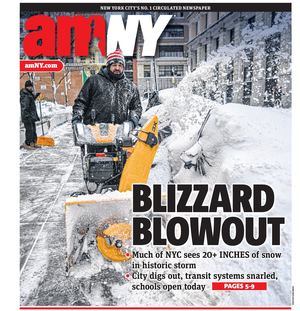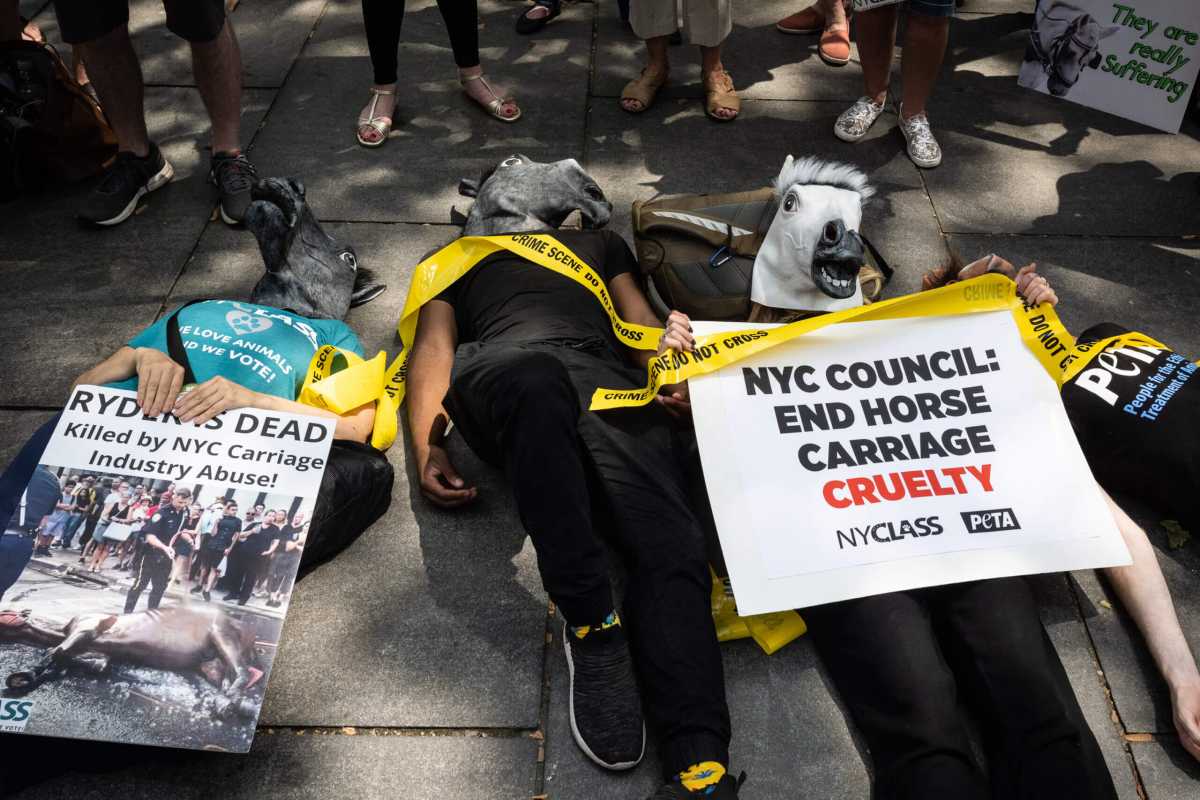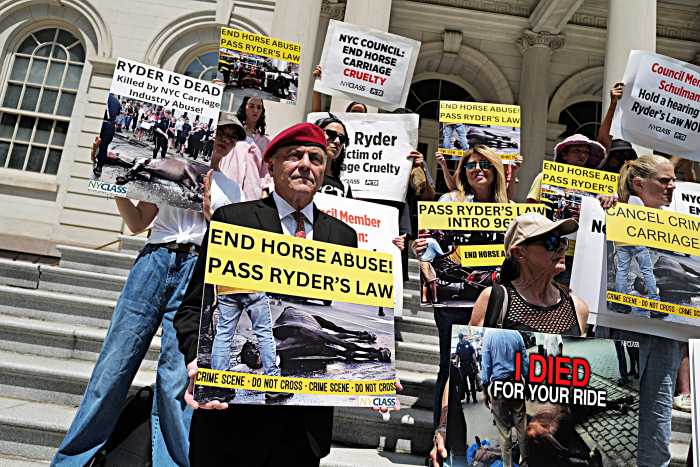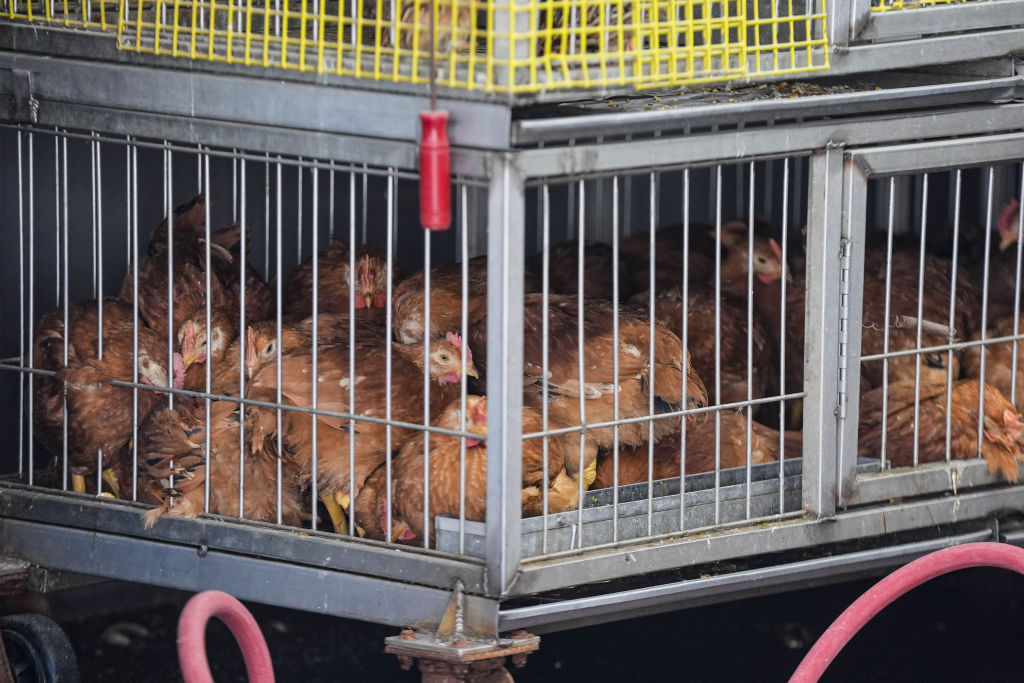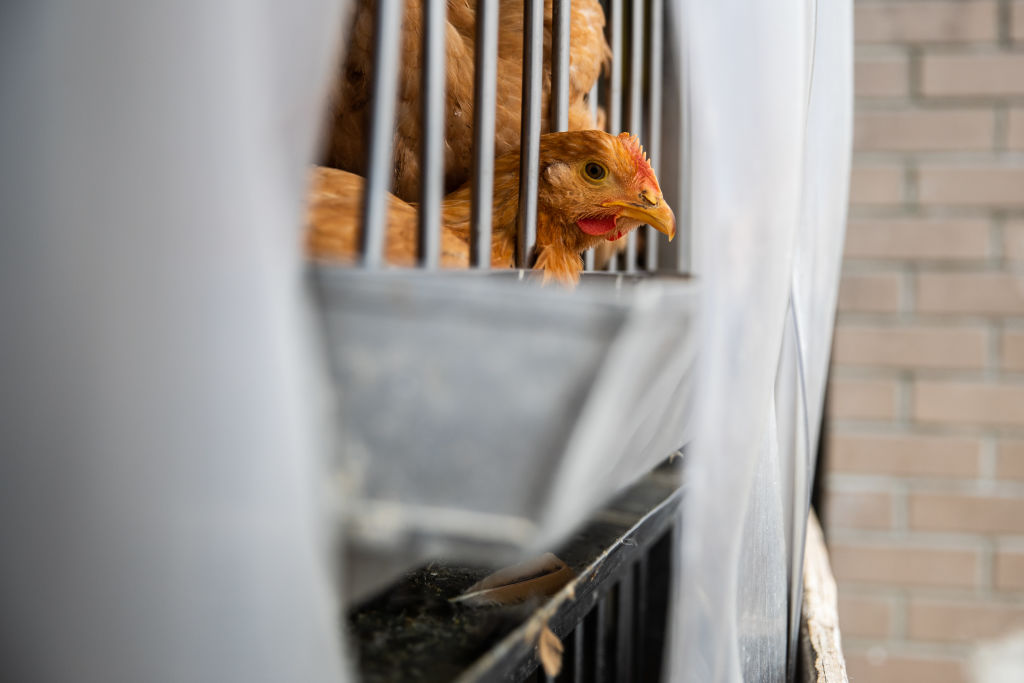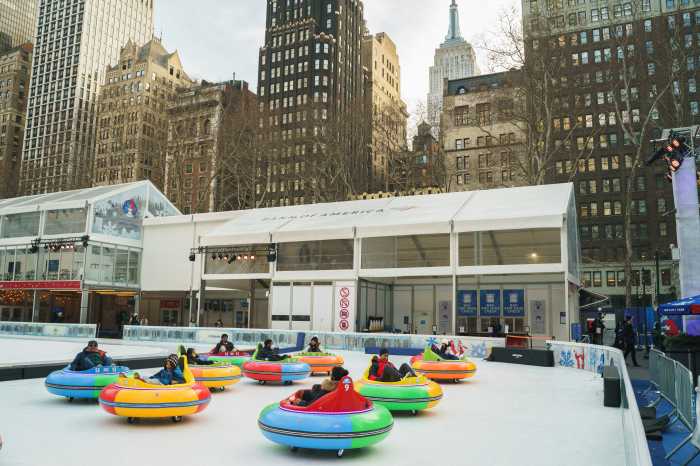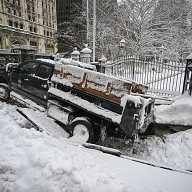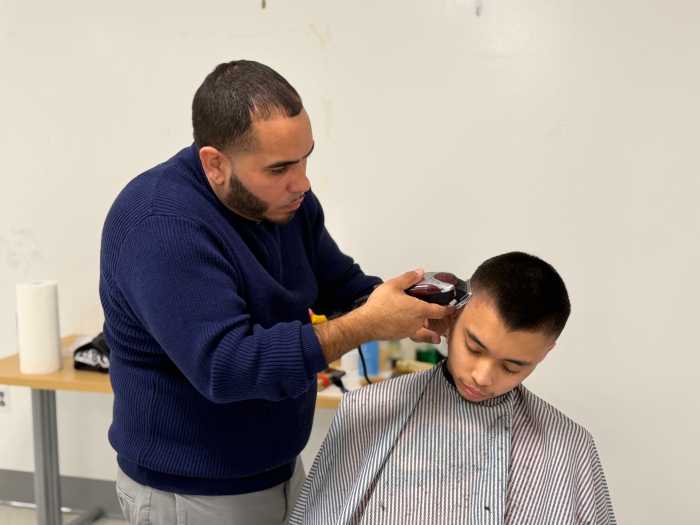In a historic move, the Central Park Conservancy called on city officials to end horse-drawn carriages in the park, interjecting itself into the fight between unionized transit workers and animal rights activists on Tuesday.
This marks the first time the nonprofit – the famous stewards of the park – took sides in the off-again, on-again, years-long controversy between carriage drivers and animal rights supporters. The lift on their neutrality comes a week after carriage-horse Lady collapsed and died in Hell’s Kitchen on the West Side of Manhattan on Aug. 5.
The organization, among animal rights supporters, politicians and other New Yorkers, supports Ryder’s Law, which would end the operation of horse-drawn cabs in the city.
Betsy Smith, head of the conservancy, sent a letter to NYC officials, including Mayor Eric Adams and members of the City Council, advocating for the end of the carriage horse industry, which has existed in the park since the 1800s.
“After many years of maintaining a neutral stance, the Central Park Conservancy is writing to formally express its opposition to the continued operation of horse-drawn carriages in Central Park,” part of the letter stated.
Smith cited public safety concerns and damage to the park’s roads caused by the carriages becoming “unsustainable” as reasons for supporting the ban.
“The public safety risks, infrastructure damage, and repeated violations of city regulations caused by horse-drawn carriages can no longer be ignored,” Smith said in a statement to amNewYork. “Simply put, this practice is no longer compatible with the realities of a modern, heavily used, and shared public space. We believe it’s time to turn the page, as most major cities already have.”
The ‘time to act is right now’
Lady’s death comes weeks after horse-carriage driver Ian McKeever was acquitted of animal cruelty charges in the death of carriage horse, Ryder, who collapsed on the West Side. Ryder recovered from collapse, but died months after retiring from his work.
Animal rights activists and politicians, including City Council Member Robert Holden, have led the charge to pass the horse’s namesake law since Ryder’s death in 2022.
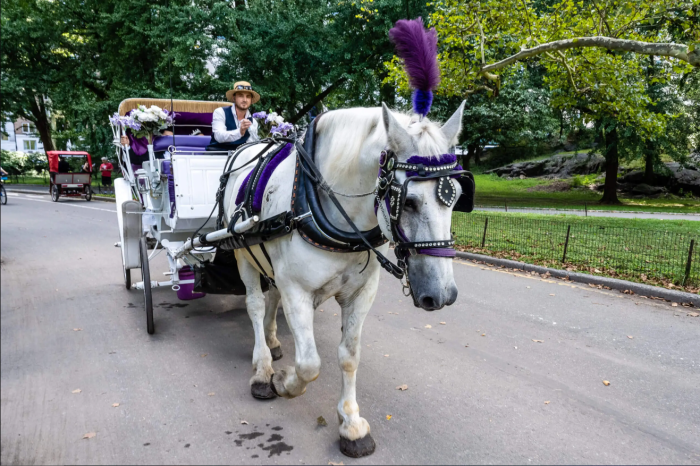
Edita Birnkrant praised the Central Park Conservancy for supporting the ban and called on city officials to take action.
“When the very caretakers of Central Park want this cruelty gone, and the majority of polled New Yorkers agree, the council and mayor have no excuse left,” she said. “We cannot wait for more inevitable tragedies: more horses collapsing or dropping dead, crashing into vehicles, sending people to the hospital, or even causing fatalities. The time to act is right now, and the council must get this done before the year ends.”
A ban would be ‘outrageous’, says union
Meanwhile, Transport Workers Union Local 100, called the proposed ban and Ryder’s Law, “outrageous.” The union represents about 200 carriage riders in the city.
John Samuelsen, president of the union, said the ban would put the drivers out of work, and slammed the conservancy for being out of touch with its decision.
“The corporate aristocrats at the Central Park Conservancy are now outrageously supporting a measure that would throw about 200 blue-collar workers in the carriage-horse tourism industry out of work, with no regard for how they will pay their rents, mortgages, send their kids to college, put food on the table, or meet other expenses,” he said.
He also said the conservancy is “desecrating” the iconic park’s history, explaining that Central Park was designed for horse-drawn carriages to roll through and provide New Yorkers with “an escape from the hustle and bustle” of the city.
Samuelsen recommended building a stable in the park so the horses would not have to hoof home on city streets.
“They mostly now walk between their stables and the park, and on a few occasions, give rides on streets,” the union head said. “Animal lovers from across the country, including New York legislators, would absolutely contribute to building such a facility.”
He also said a park stable could create learning opportunities about horses and nature and possibly provide horse-therapy programs for those in need, such as veterans with PTSD.
“It would be a win-win for the horses, carriage horse drivers and owners, and the public,” Samuelsen said.
Meanwhile, a spokesperson for Adams said the mayor is “heartbroken” by both horses’ deaths, and his team will meet with industry representatives and advocates to discuss the next steps.
“Mayor Adams is heartbroken by this incident, and we’re dedicated to finding a better path forward to prevent tragedies like the one that happened last week,” the spokesperson said, referencing Lady’s death. “We are working diligently to bring stakeholders to the table to keep our parks, animals, and all New Yorkers safe.”
A spokesperson for the NYC Council said Ryder’s Law is continuing through the legislative process.
“We welcome feedback from the Central Park Conservancy and all stakeholders on this bill that continues to go through the Council’s legislative process, which is deliberative and allows for thorough public input,” the spokesperson said.
